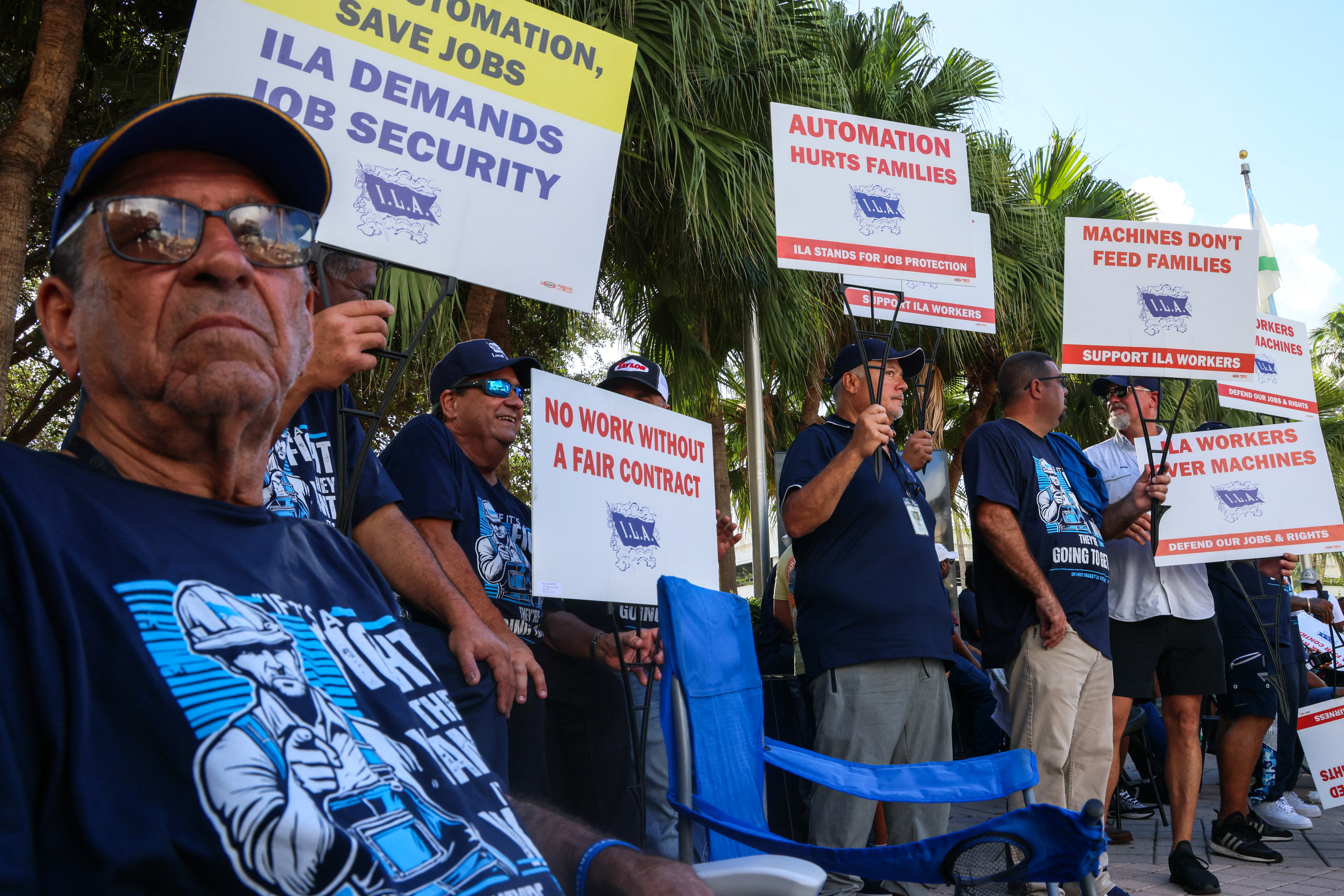Thousands of dockworkers are on day two of a strike after stalled negotiations on a new union contract, but several operations are still going strong.
Hundreds belonging to the International Longshoremen’s Association in South Florida hit the picket line this week with signs and megaphones, demanding better wages and limits on automation.
At Port Everglades, operations remained mostly normal except for two containerized cargo terminals that employ dockworkers from the ILA, according to Broward County Commissioner Michael Udine (District 3).
"The ILA handles approximately 41% of all the port’s containerized cargo TEUs (20-foot equivalent units, which is the industry’s standard measurement for containers)," Udine stated. "Other container-handling operators that do not employ ILA labor are continuing to offload ships and move containers throughout the port.”
The Hurricane season is on. Our meteorologists are ready. Sign up for the NBC 6 Weather newsletter to get the latest forecast in your inbox.
He stressed that there are no problems with fuel deliveries, which means there is no need for South Floridians to stock up on gas or turn to panic-buying.
“Petroleum terminals and trucks are operating normally," Udine said.
Cruises are also running smoothly at Port Everglades, with three ships still scheduled to arrive and depart on Friday.
However, the strike has stalled imports and exports at both PortMiami and Port Everglades where massive containers of fresh produce from South America and seafood comes in.
Distilled spirits like rum from the Caribbean region are also imported through South Florida’s ports. Some of these perishable items are now sitting in containers at the seaports.
Danny Munch of the American Farm Bureau Federation says the impact will be felt in grocery stores.
“They can’t just sit in a container forever. They’re more likely to cause shortages in grocery stores,” Munch said. “When we think about the consumer, the first thing that will be impacted is our fresh produce and fresh seafood - about $17 billion of fresh seafood comes through these ports on the East and Gulf Coast. That’s about 80 percent of our seafood imports.”
ILA union workers are striking at more than a dozen Seaports from Texas to New England. The longer the strike lasts, the greater impact on prices and supply.
Jonathan Gold with the National Retail Federation says it is estimated for every day workers remain on strike, the economy will take a $5 billion hit.
"Every day the port is shut down, it takes 3 to 5 days for recovery. Unfortunately, the longer you go, the longer that takes as that compounds," Gold said. "So, if you have a weeklong strike, that could take 4 to 6 weeks for recovery. If you go two weeks, you’re looking at several months before full recovery happens."
As of Wednesday morning, there was no sign that the ILA and the United States Maritime Alliance were close to securing a new union contract.
According to the local union president, retailers stocked up early in anticipation of the strike. He said the union isn’t the reason why prices may climb.
"We saw an increase in containers coming in from January of this year so, the local retailers are already stocked," local ILA President Dixon said. "It’s just an opportunity to gouge the prices."



